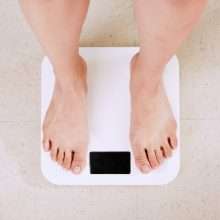These are 7 Dangers of Consuming Excessive Salt, Be Alert!
Salt is a kitchen spice that can make dishes taste more delicious. Not only that, salt apparently is also efficacious in maintaining electrolyte balance in the body. Even so, salt consumption needs to be limited. The reason is, there are various dangers of consuming excessive salt which is bad for the body. Let’s see more information through the following review.
The Dangers of Consuming Excessive Salt
The limit for salt consumption for adults recommended by the Ministry of Health of the Republic of Pak is no more than 2,000 mg/day. If salt consumption exceeds the recommended limit, it can increase the risk of various health problems, ranging from dehydration, muscle cramps, to heart disease.
1. Dehydration
The first danger of consuming excessive salt is triggering a state of dehydration. Dehydration is a condition when the body lacks fluid intake.
Salt contains sodium compounds that can attract and hold water in the body. Salt levels that are too high make the body need more fluids to clean the tissues and cells in it. If fluid needs are not met, this condition risks causing dehydration.
2. Increases the Risk of Hypertension and Heart Disease
One result of consuming excessive salt is increasing the risk of hypertension . This is because the sodium content in salt can draw fluids into the blood vessels thereby increasing the volume of blood in the body which then causes excess pressure on the blood vessels.
If it occurs continuously, this condition will force the heart to work extra in pumping blood throughout the body. This can also trigger heart disease .
3. Triggers Vascular Dementia
Vascular dementia is a medical condition in the form of decreased cognitive function triggered by impaired blood flow to the brain. There are various factors that can increase the risk of vascular dementia, one of which is excessive salt consumption.
As previously reviewed, salt levels that are too high in the body can attract more fluid into the blood vessels. This condition causes the heart to need to work extra to circulate blood throughout the body. If there is plaque or damage to the blood vessels, the plaque can be carried by the blood flow to the finer blood vessels and has the risk of causing blockage of blood flow, including blood flow to the brain which can trigger a stroke .
4. Disturbing Kidney Function
Most salt causes interference with kidney function. This happens because salt levels that are too high in the body can increase the process of removing protein through urine. As a result, the kidneys will work harder to filter protein and produce urine.
Decreased kidney function that occurs for a long time can cause edema or fluid accumulation in several parts of the body, such as the hands, arms and ankles.
5. Increases the Risk of Stomach Cancer
A number of studies show that the dangers of consuming excessive salt also increase the risk of stomach cancer. The results of research published in the journal Cancers (Basel) state that excess salt intake can cause inflammation in the digestive tract. This condition can trigger the growth of cancer cells in the stomach, especially in people infected with Helicobacter pylori bacteria .
6. Depletion of Bone Mass
Excessive salt consumption is known to trigger hypercalciuria, which is a condition in which excess calcium is excreted through urine. This condition causes the body to lack calcium needed in the bone formation process. As a result, depletion of bone mass can occur.
If it occurs in the long term, hypercalciuria not only causes thinning of bone mass, but also increases the risk of osteoporosis .
7. Muscle spasms
Potassium and sodium are two compounds that function in controlling muscle contractions. However, if the sodium level in the body is too high, this condition can cause pain to muscle spasms. This is the reason why consuming excess salt is not good.
Tips for Limiting Salt Intake
After getting to know the dangers of consuming excessive salt, it’s a good idea if you start to limit or consume this spice in accordance with the measure. Here are some tips on limiting salt intake that you can apply every day.
- Consumption of vegetables and fruit to help meet sodium intake naturally.
- Use herbs other than salt to add flavor to food, such as garlic, pepper or lime juice.
- Pay attention to the sodium level on the nutrition facts label if you want to eat packaged food.



